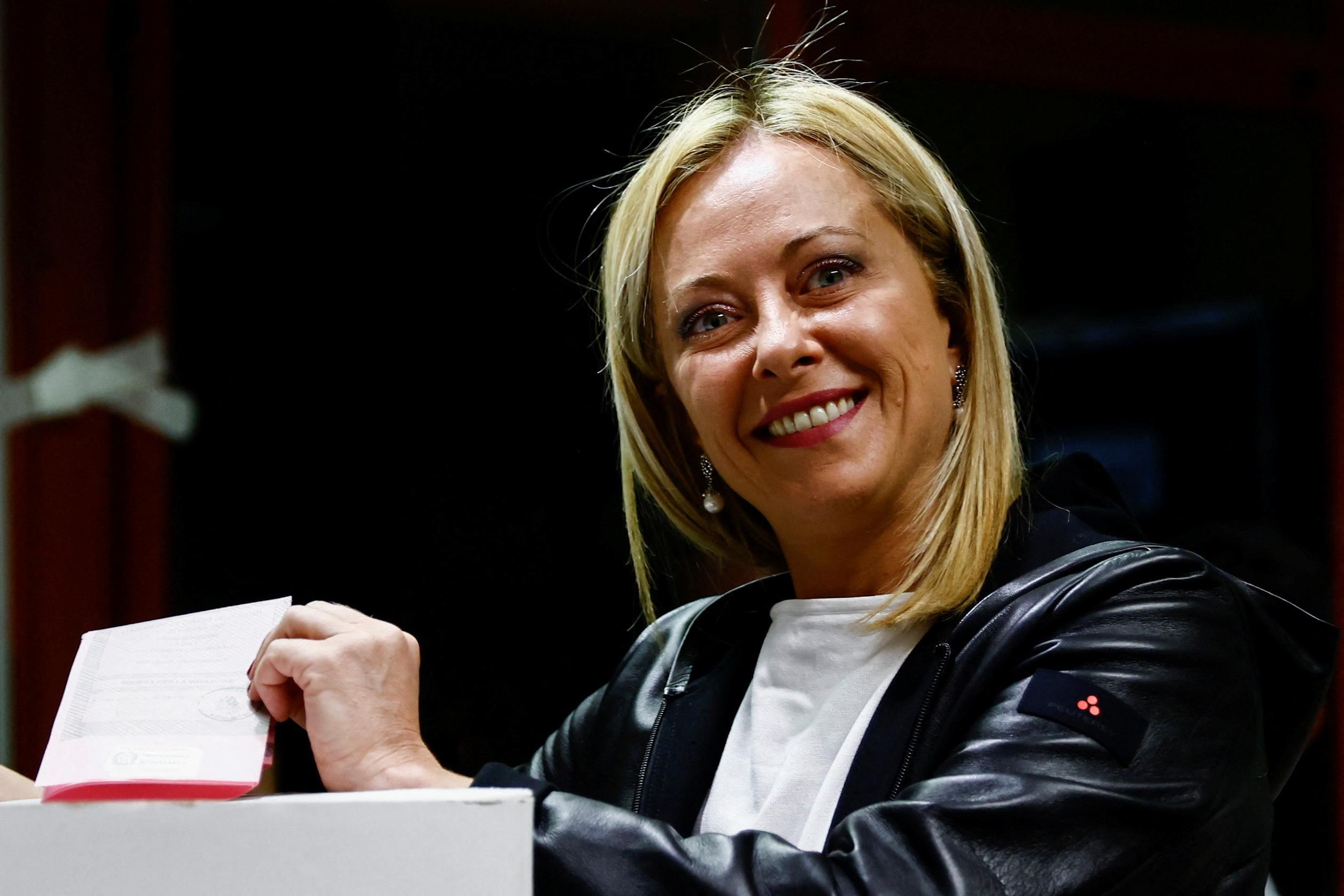What We’re Watching: Italian far-right wins big, Russia holds sham votes in Ukraine
Far-right sweeps to power in Italian election
As expected, a three-party coalition led by the far-right won Italy's legislative election on Sunday, paving the way for Giorgia Meloni to become the country's first female PM and most rightwing leader since Benito Mussolini. With almost all ballots counted, Meloni's Brothers of Italy party came in first with over 26% of the vote. Along with Lega and Forza Italia, the coalition she leads will get more than 43% — enough for a majority of seats in both the 400-member lower house of parliament and the 200-member Senate. What happens next? The three parties have about six weeks to form a government captained by Meloni, who's pretty radical on some things but less so on others. She wants to stay in the EU but for Brussels to have less power over Italian affairs. Meloni also backs EU and NATO moves to support Ukraine against Russia (unlike one of her two junior coalition partners, former PM Silvio Berlusconi, a longtime Vladimir Putin pal who seemed to defend Russia's invasion on the eve of the election). Still, Meloni's top priority now is ensuring that Italy gets all the EU pandemic relief cash it needs to weather high inflation and an energy crisis.
Russia pushes to annex occupied regions in sham referenda
Russia keeps moving to formally annex four Ukrainian regions currently under its occupation. On Friday, five days of referenda got underway in Luhansk, Donetsk, Kherson, and Zaporizhzhia. While the Western media reports that armed soldiers are going door-to-door to collect votes, Russian state media says they’re just around for security. Expected to wrap on Tuesday, the referenda could end up with Russia gobbling up some 15% of Ukraine. Annexations would be in violation of international law. Still, they would also give Russia cover to resist future Ukrainian advances by claiming any assaults as attacks on Russian sovereignty, which could lead to further escalation. Fighting in the region continues, and the Ukrainians claim to have taken out several Russian armor and artillery systems. Kyiv, for its part, has appealed to loyal residents in affected areas to “resist” the plebiscites. Meanwhile, the White House has called the referenda a sham, and the G7 has followed suit. The Brits claim to have evidence that Russia is planning to formalize the annexation by the end of the month.
This article comes to you from the Signal newsletter team of GZERO Media. Sign up today.
